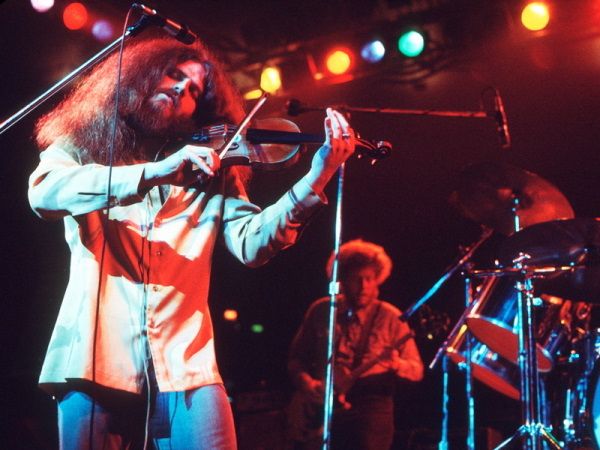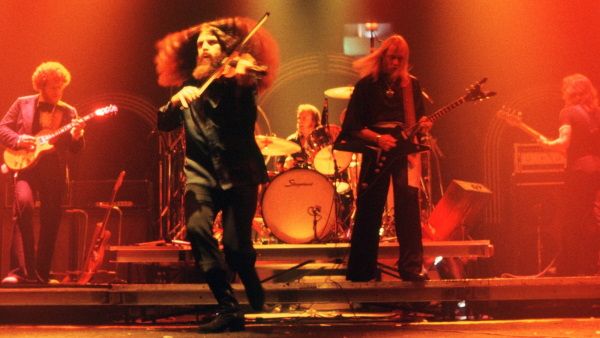The genesis of Kansas the band goes back to Kansas the state in 1970 where they started out as a garage/bar band in Topeka. The group saw members come and go until a permanent line-up was found. They gigged and were eventually discovered by Wally Gold, an associate of record producer Don Kirshner. Kirshner was impressed and he signed the band to his own label. They released their debut, Kansas, in 1974.
Their sound was a distinctly Midwestern mix of British symphonic progressive rock and the hard rock of the 70s. The dual guitar attack of Kerry Livgren & Rich Williams blended with singer Steve Walsh's keys and there was also the lead violin of Robby Steinhardt, who, in addition to strings, contributed many lead vocals to songs as well. The band’s intricate melodies and odd time signatures certainly put them in the same category as Genesis and Yes much of the time. You can hear their influences in, for example, the opening of "The Spider" from 1977’s Point of Know Return which bears more than a passing resemblance to the opening of "Tarkus" by Emerson, Lake and Palmer. And the "Father Padilla Meets the Perfect Gnat" section of "Magnum Opus", from 1976’s Leftoverture, will easily bring "Broadway Melody of 1974" by Genesis to mind.
Despite the obvious English influences, Kansas had a very different flavor. If mid-70s King Crimson was the Bartok of prog and Magma its Orff, then Kansas was the genre’s Aaron Copeland. Take songs such as "Cheyenne Anthem" and "People of the South Wind", both of which deal with Native American peoples. The Cheyenne are natives of the Great Plains, which includes the entirety of the state of Kansas, while the latter song is about the Kaw people after whom the band's home state was named. These songs could never have been done by any of the prog heavyweights across The Pond. I suspect any attempt to do so would have sounded like an academic exercise.
More generally, I think they had a Midwestern vibe which also helped to make them distinct from their proggy cousins on the other side of the Atlantic. "Song for America" and "Death of Mother Nature Suite" come to mind as songs with more of a pan-Midwestern feel to them as opposed to a Great Plains or Kansas specific one.
No doubt someone who is more familiar with the band’s work could elaborate upon the Midwestern qualities of their music. But judge for yourself. Their albums provide a natural starting point to become familiar with their whirling combination of guitar, organ, and violin plus the great harmony vocals of Steve Walsh and Robby Steinhardt. But I would also recommend listening to them live.
Their show from Pittsburgh on Halloween 1976 is a classic. It took place a mere 10 days after the release of Leftoverture and it opens with "Carry On Wayward Son" which had not yet been played to death by classic rock radio. The gig features a good selection of songs from all of their albums up through Leftoverture and demonstrates well the energy they infused the songs with. At times it's like bassist Dave Hope and drummer Phil Ehart are just daring the rest of the band to keep up.


No comments:
Post a Comment